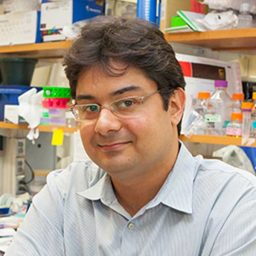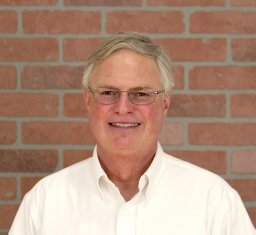Heart disease is the leading cause of death in the United States. About 3,200 Americans die of cardiovascular disease each day, and about 92.1 million American adults are living with some form of cardiovascular disease or the after-effects of a stroke, according to the American Heart Association’s 2018 Heart Disease and Stroke Statistics Update.
The American Heart Association sponsors “American Heart Month” every February as a strategy for increasing heart disease awareness and promoting prevention at home and in the community. In conjunction with Heart Month, National Heart Failure Awareness Week takes place Feb. 9 – 15.
Florida State University experts are available to comment on a variety of topics related to heart disease awareness and self-care after heart failure.

Laurie Abbott, assistant professor, College of Nursing
(850) 644-6008; labbott@fsu.edu
Abbott’s research involves reducing cardiovascular disease (CVD) risk among rural populations and exploring factors related to rural health disparities. She has conducted two cluster randomized trials that tested evidence-based cardiovascular health promotion interventions in rural community settings. She also has measured factors that affect health outcomes including acute and chronic stress, resilience and social support. This research is intended to advance rural health equity by increasing CVD awareness and promoting healthy lifestyle behaviors that enhance wellness and reduce modifiable disease risk factors, disease exacerbation and preventable hospitalizations.
“CVD prevalence and mortality are high among people living in the United States, especially among those living in rural areas of the Southeast. Risk factors related to CVD have also been associated with increased risk for the future development of cancer, another major cause of death. This highlights the importance of making healthy lifestyle choices that reduce modifiable disease risk such as increasing produce servings, limiting dietary fat and sugar intake, exercising regularly, avoiding nicotine-delivery products, reducing stress and effectively managing diabetes and hypertension. My research in rural community settings indicates that helping people understand the causal links between disease risk factors and progression, as well as enhancing their health literacy, knowledge and self-care skills, are important steps toward promoting heart health. Prevention is key to living a healthy life.”

Lucinda J. Graven, assistant professor, College of Nursing
(850) 644-5601; lgraven@fsu.edu
Graven’s research focuses on improving outcomes for heart failure patients through the development and testing of cognitive-behavioral interventions at the individual and family level. Her intervention, the Coping in Heart Failure Partnership, holds promise for improving heart failure self-care in community dwelling adults with heart failure. Recognizing the importance of family caregivers in helping heart failure patients maintain optimal self-care, Graven is currently adapting her intervention to include family caregivers. Graven’s community-based research also focuses on improving heart failure self-care in rural patients who are more susceptible to poor health outcomes. Graven was recognized as a Fellow of the American Heart Association in 2019.
“February 9 – 15 has been designated National Heart Failure Awareness Week by the Heart Failure Society of America (HFSA) to create national awareness of the severity of this disease in the United States. While overall mortality and hospitalization rates for heart failure are high nationwide, individuals with heart failure living in rural areas are at greater risk for poor outcomes versus their urban counterparts. Rural residents have higher risk-adjusted rates for mortality, as well as higher rates of heart failure-related hospitalizations and emergency room visits than urban residents, illustrating the importance of improving disease management in this population. Interventions that improve disease management at the family-level are necessary to prevent poor outcomes in heart failure patients, as research shows that self-care interventions involving a family caregiver result in better patient outcomes and longer sustainability. My research is aimed at improving family processes to facilitate coping and disease management in hopes of improving patient outcomes and reducing healthcare utilization among rural-residing residents with heart failure.”

Jose Pinto, associate professor, College of Medicine
(850) 645-0016; jose.pinto@med.fsu.edu
Pinto’s research focuses on cardiac and skeletal muscle regulation and genetic diseases. His most recent study focuses on a devastating case of pediatric dilated cardiomyopathy, a rare heart condition that affects infants and children where the heart doesn’t function correctly. Through DNA sequencing, Pinto and other researchers from Yale School of Medicine and Tel Aviv Sourasky Medical Center were able to determine that three children with cardiomyopathy had variants (mutations) in the same gene for a heart protein named troponin C. Through biophysical, biochemical and structural biology experiments, researchers gained insights into cardiac disease and the function of the affected molecule (troponin).
Pinto has been volunteering with the American Heart Association for almost a decade reviewing research projects and advising the Association on which projects should be prioritized for funding. Pinto and colleagues have continuously studied the function of troponin C in the heart with the hope to develop tailored therapies to combat heart disease.

Bryant Chase, professor, College of Arts & Sciences
(850) 644-0392; chase@bio.fsu.edu
Chase’s research focuses on cellular and molecular biomechanics and structure of striated cardiac and skeletal muscles. In collaboration with Pinto, he is currently studying genetic variants in cardiac troponin that cause hypertrophic or dilated cardiomyopathies. Troponin is the calcium ion sensor that regulates contraction of the heart and pumping of blood. It is central to the heart’s function, and small changes in the troponin gene’s DNA sequence may result in major, detrimental changes in the heart’s ability to pump blood. This research focus derives in part from concern that cardiovascular diseases remain the major reason for death and hospitalization in the developed world. Chase was recognized as a Fellow of the American Heart Association in 2002.
“The central theme of my research program is to understand the biophysical basis of biological motility, its regulation and modulation by cellular metabolism. Much remains to be learned about actomyosin interactions and their regulation, especially in cardiovascular function and diseases, cancer (metastasis), human performance and bionanotechnology (biological nanomotors and protein mechanics). My experimental work has most often been directed toward answering molecular and cellular questions related to these topics.”




